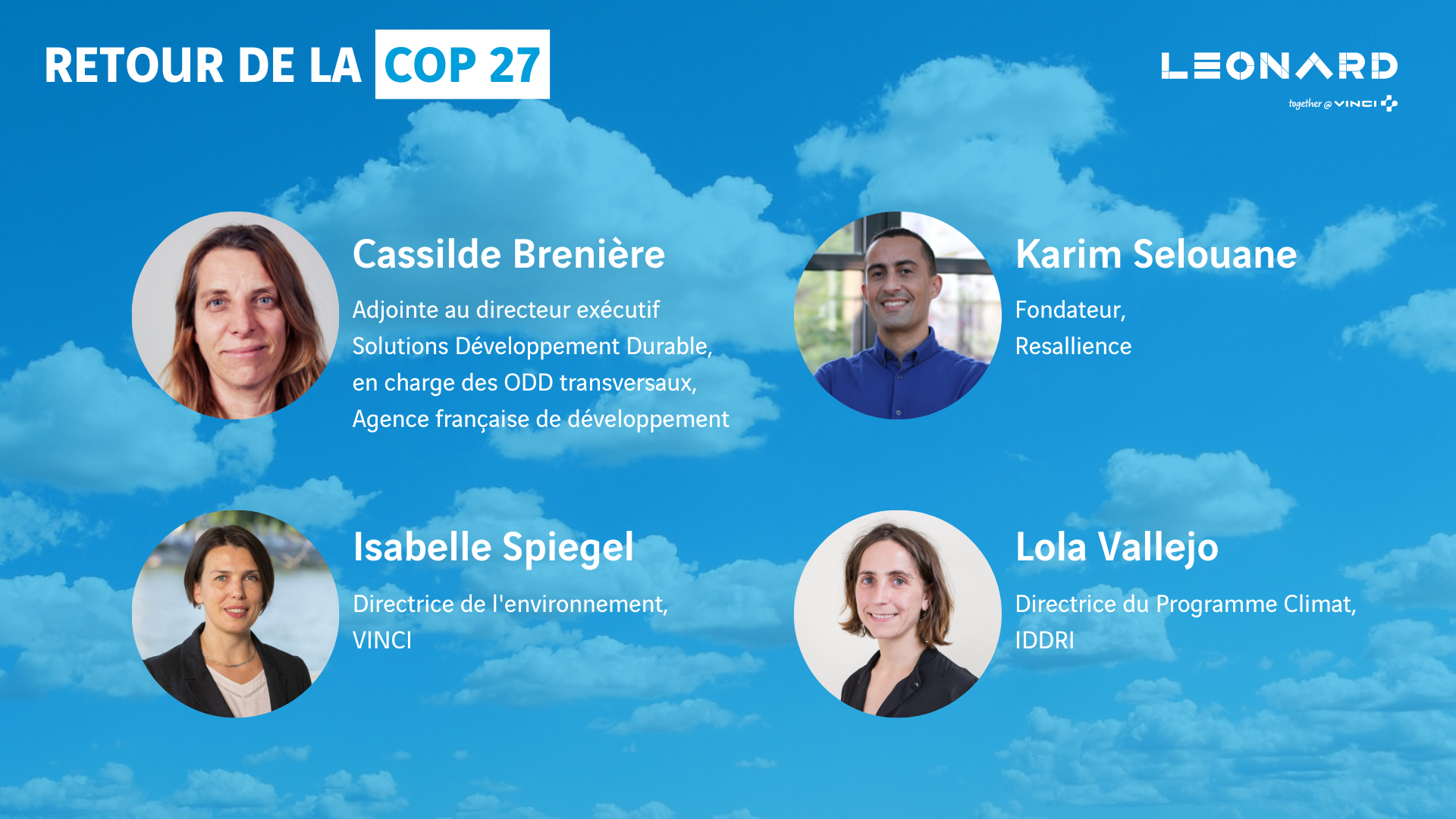
From 6 to 18 November 2022, the 27th United Nations Climate Change Conference, known as COP 27, was held in Sharm el-Sheikh, Egypt. Without denying the legitimacy of a feeling of disappointment, the participants in the round table organised by Leonard agreed on the usefulness of this major annual global meeting. “Even if the official negotiations do not always lead to significant improvements, year after year the COP sets the pace for the global debate on climate issues and contributes to political progress in the field”, summarised Cassilde Brenière.
Isabelle Spiegel, Environment Director of the VINCI Group: “The COPs are the lowest common denominator, necessary but not sufficient, for reflection on the climate issue.
COP 27 was no exception. Whereas a year ago in Glasgow, the negotiations were polarised around mitigation issues, the Sharm el-Sheikh conference clearly addressed the issue of climate justice, by adopting the first provisions on the scope of loss and damage. The States thus agreed to create a fund – without, however, guaranteeing the sources or the amount of the contribution – dedicated to the countries most affected by the effects of climate change, particularly small island States. “This is a huge victory for the countries of the South and for civil society, which has mobilised very strongly for climate justice,” said Lola Vallejo.
Cassilde Brenière, Deputy to the Executive Director of Sustainable Development Solutions in charge of cross-cutting SDGs at the French Development Agency (AFD): “There is a precise taxonomy for the fields of mitigation and adaptation. But as far as loss and damage are concerned, everything has yet to be developed.
Making the private sector accountable
Another advance to be credited to this new COP is the mention of the private sector’s responsibility for climate change and its impacts on the poorest countries. For the first time, the European Union has taken up the idea of taxes on the aviation, maritime transport and fossil fuel sectors. Legal mechanisms at the international level still need to be considered.
Lola Vallejo, Director of the Climate Programme at the Institute for Sustainable Development and International Relations (IDDRI): “If we had kept the Grenelle de l’environnement commitments on building renovation, we would no longer need Russian gas in France.”
The opening of the spectrum of responsibilities refers to the need to build a shared approach to the climate issue. “The infrastructures we are building today will have to cope with greater damage tomorrow. In this respect, not everyone is probably ready,” stressed Isabelle Spiegel, insisting on the critical role that insurers will play in future risk models.
For Karim Selouane, there is an urgent need to build a systemic strategy, mobilising economic, social, societal and cultural registers in the climate fight. “It will be necessary to invest in training to respond to the emergence of new professions and professional reconversions, to imagine new forms of governance to enable territories to take part in action plans, to introduce a paradigm shift in the way strategies are envisaged in the face of unknown horizons,” he defended.
Karim Selouane, founder of Résallience: “We must learn to project ourselves into a radical mutation of our natural and built environments.
So many new models will have to be financed through innovative mechanisms capable of taking into account the globality and complexity of the climate prism, from mitigation imperatives to loss and damage mechanisms and adaptation strategies.


